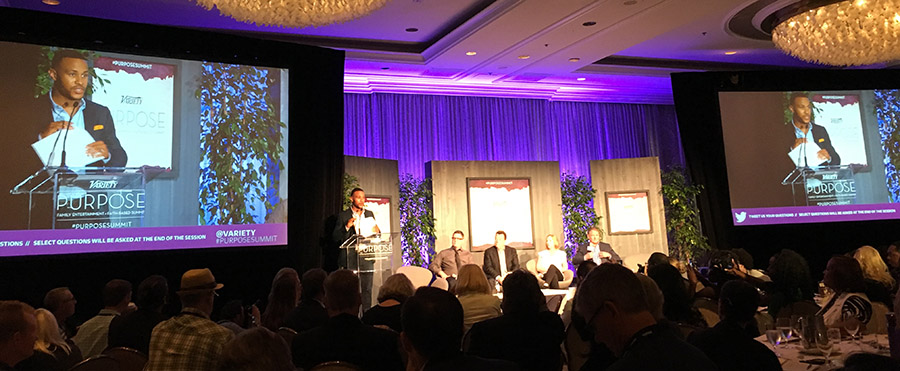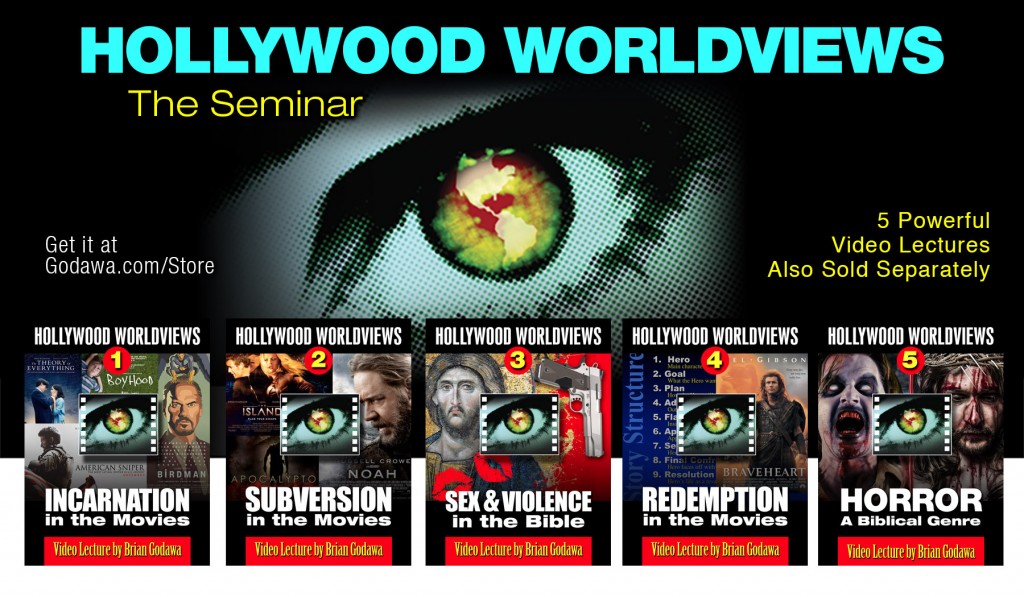
I went to the all-day family entertainment and faith-based summit called “Purpose,” put on by Variety. I saw panel discussions on Faith in Mainstream Entertainment, How to Win the Faith Audience, Representation of Religion in Entertainment and others. This was not a conference for wannabes or Christian subculture, these were successful writers, producers, and executives, key decision makers and content makers in Hollywood. The real thing, people working with studios and networks making and marketing content related to the family and faith audience, or as my colleague Matthew Faraci of Inspire calls it, The “values audience.” (It’s more than just faith, it’s about cherished values that go along with that faith).
I have been involved as an independent filmmaker in Hollywood for a long time and I have experienced my share of cynicism with a system and people who are late to the party of recognizing and respecting the interests of this huge demographic of faith and values audience. But I have also been frustrated with the “faith-based” genre for its cheesy sermonizing and lack of excellence in craft, which to my mind disrespects God by disrespecting creation and beauty. I’m a Christian, and I don’t believe the message of many Christian movies. (Is this the fault of Christians with low standards pouring money into crap or the fault of a media culture that fails to provide for their demographic needs, thus resulting in Christians supporting lesser quality because it’s the only thing that respects them?)
But there is hope growing in Hollyweird.
Studios and networks finally see that there is money to be made in respecting faith and values audiences. As Paradigm agent Michael Van Dyck pointed out, sadly, these gatekeepers still don’t quite understand the demographic beyond their own stereotypes, but they are getting better as they hire more individuals that do get it. Yes, you have the abysmal failures like Noah and Exodus, but then you have the screaming successes of Miracles from Heaven and When Calls the Heart.
Some of those successful storytellers of faith were Devon Franklin, producer of Miracles from Heaven, Patrick Aiello, producer of Risen, Matthew Malick, producer of Scorsese’s Silence, Rick Rekedal of Dreamworks Animation, Jonathan Merkh of publisher Simon and Shuster, Writers Cary Solomon of God’s Not Dead, Bryan Bird of When Calls the Heart and many others.
The key to a growing presence of Christians in Hollywood has been in this generation ceasing seeing Hollywood as Sodom and Gomorrah to flee from without, but rather seeing it as a mission field to go into and influence from within.
Takeaways
Several memes rose within the conference in most all the panels.
Authenticity
The biggest was the keyword, AUTHENTICITY. If you are going to try to tell your faith story, you must portray your material with honesty about the human experience. That means being honest about the flaws of the faithful, and being straight about their struggles. If you paint a rosy or picture-perfect faith, you are not being authentic, and such lack of authenticity stinks to high heaven, not only the unbelievers, but to the Christian content creators and gatekeepers as well.
Michael Carney spoke of the need to depict sin and pain with veracity. The Bible is rated R (my own mantra). He said that mainstream people watch Christian films and say, “That’s not reality.” Why? Because too often they are afraid of going where the Bible goes with man’s sinfulness. Their attempt to “keep it clean” becomes a false unbiblical narrative because in the end real life is not clean, it’s a mess, and redemption only makes sense if that mess is authentically portrayed.
And authenticity does not necessarily mean Christian spirituality. There were some representatives who create non-Christian spirituality, but the emphasis there was on promoting the conversation in a culture that often ignores spiritual need. Oprah’s New Age “Super Soul Sunday” is certainly not Christian redemption, but it opens the conversation that is otherwise ignored in a strangled secular public square.
Dan Rupple of MasterMedia told me of how he and others have taken Christian students to Sundance film festival for over a decade now. They see a lot of material that is definitely NOT spiritually edifying, some of it downright destructive. But their interaction with filmmakers allows them the possibility to bring the Gospel to them by listening to their stories and responding with our own.
Story is King
Another keyword phrase was STORY IS KING, still. As Matthew Malick revealed, it doesn’t matter what your message is if you don’t tell a good story, you won’t draw the audience. This is still a business. You must make money or you will not be able to make more movies. And at the end of the day, it is a great story that draws everyone in, even those who may not agree with your actual “message.”
And “message” is worthless if your story isn’t compelling. It’s so elementary, but the reason why Christian storytellers often don’t get it is because they value message over story, and therefore story will always be sacrificed to message. Message in a good story doesn’t need to be preached, because it is incarnate in the choices and behavior of the characters.
“Faith-Based” is Not a Helpful Label
Lastly, most of the participants agreed that “faith-based” is a label that is limiting and detrimental. I agree. It boxes you in needlessly. Every story embodies faith in a worldview of some kind. We are storytellers, not preachers. We should seek to tell great stories, period. Faith must be organic to the story or it won’t ring true. There it is again, authenticity. Often “faith-based” pigeon holes a project and hurts it in the mainstream distribution of a movie because of the prejudice of the secular viewer who avoids such things with a knee jerk reaction (Case in point: Little Boy).
PURPOSE was a time for reflection upon a system that is still a bit ignorant and insensitive to a significant market of faith and values customers, but it is trying to understand that market and trying to work within that space to provide stories for us. We still have a way to go, but God is moving in Hollywood, and Christians are alive and well within as agents of change.
Here’s a resource for those who want to apply the Christian worldview to storytelling: Hollywood Worldviews: The Seminar. All presentations sold separately or together for a discount.


2 comments on “Variety’s Family & Faith Summit: Christians are Alive and Kind of Well in Hollywood”
I’m sorry swimming in the muck isn’t going to “get” Christian based films made. You sir sound way to NEW AGEY to me. I feely your diatribe is a lost cause and you defending the need to make money for that effort sends a clear message to me of your true motives.
Blending in will get you absorbed into a vile filthy system that is corrupt to the core.
You sir as a Christian are supposed to keep yourself SEPERATE from the world view. All I read is your pitch to blend in. John 17: 14
I for one will stop following your post and anything to do with you products.
Comments are closed.